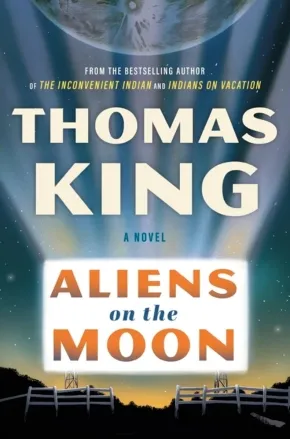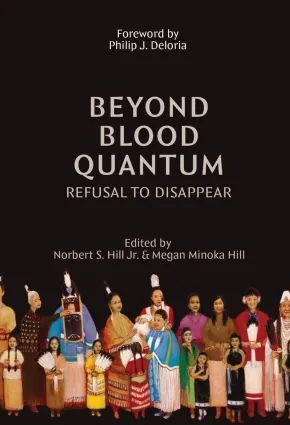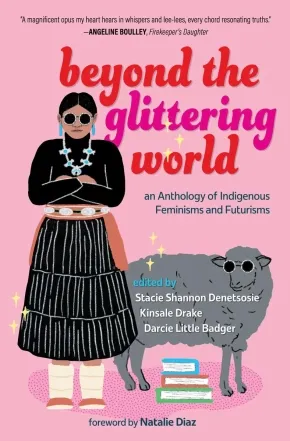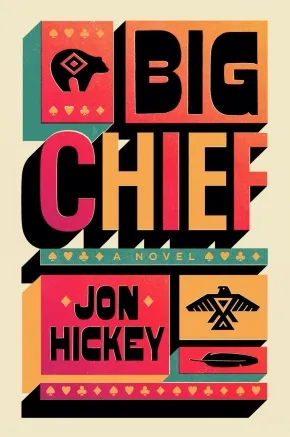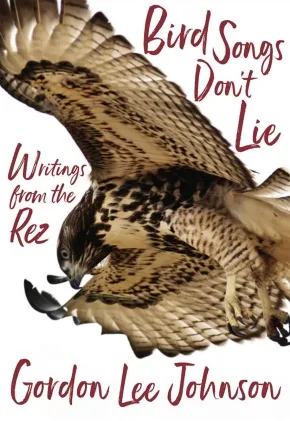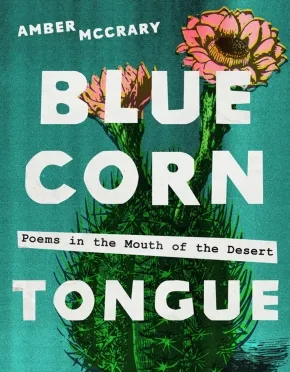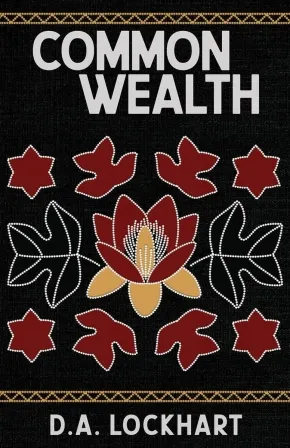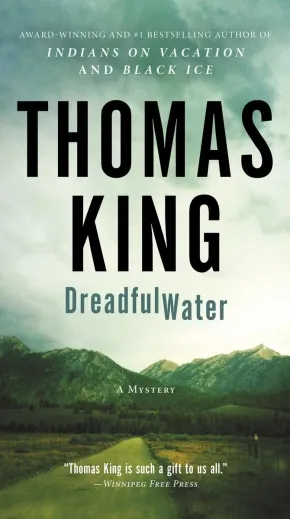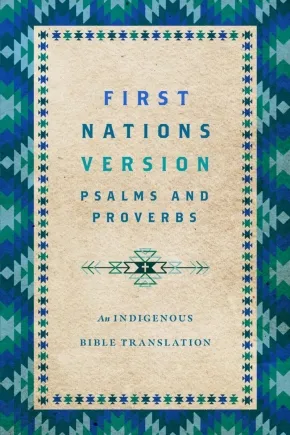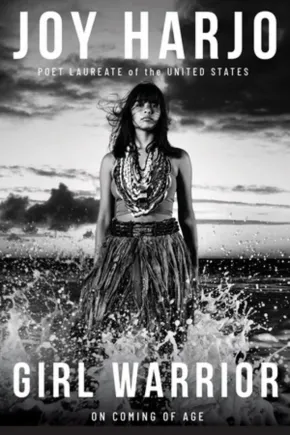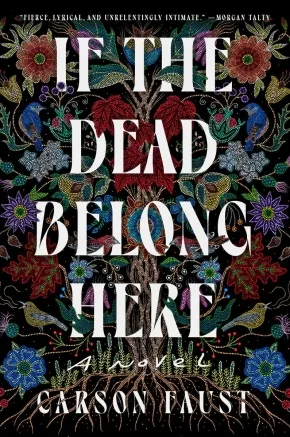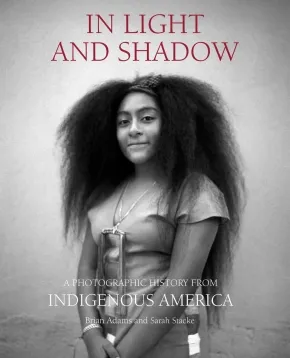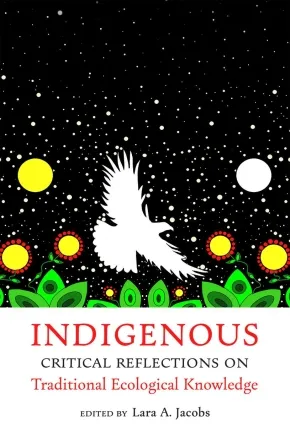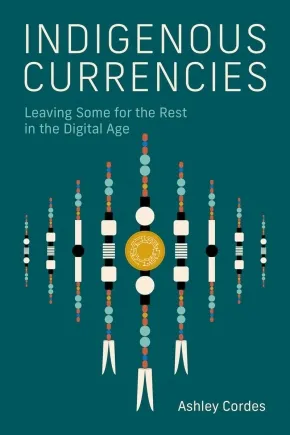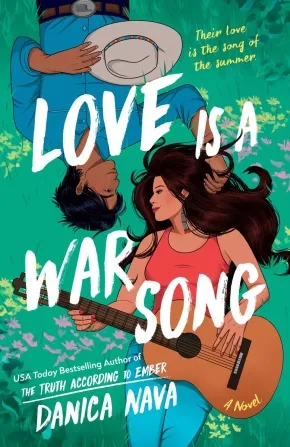
Native American
1
-
15
of
256 Results;
Sort By
Go To
of 18
Aliens on the Moon: A Novel
$34.99
Format:
Hardcover
Text Content Territories:
Indigenous Canadian;
Reading Level: N/A
ISBN / Barcode: 9781443475891
Synopsis:
Synopsis:
From the #1 bestselling and award-winning author of Indians on Vacation, a witty and wry novel set in a small Ontario town where all is seemingly ordinary except for one thing—aliens have landed on the moon
In Thomas King’s new novel, the citizens of a small Ontario town face life-changing decisions. Bria’s grandmother asks her to take her great-grandmother’s rosary to Edmonton and return it in person to the pope. When she flings it into the lake, the rosary somehow hits the pope on the cheek, thousands of kilometres away. It is the same rosary. How is this possible? Thea is furious at her son for putting her in an old-age home. She should have had a daughter. A daughter would never have forced her from her home. Darlene is mixed up with the no-good petty thief Billy. When she ends up in the hospital, she finds Thea’s fanny pack on the floor. Darlene needs the $265 tucked inside, but she also wants a reward for returning the fanny pack. Herb has bought the drive-in movie theatre on the edge of town and has turned it into his home. He watches movies on the big screen while treating the parking lot as his personal driving range. Should he travel west to see his family on the reserve? Nico has a Subaru whose battery keeps failing, but there are no replacements in North America. Gary and Brenda from the dealership are having an affair. Richard wants to set up a dating profile but has no cell phone.
Just the stuff of ordinary life except for one thing: Aliens have landed on the moon. They are watching Earth and earthlings. What is their plan? With the arrival of the aliens, ordinary life is upended in ways that are both hilarious and revealing. While some people fear the aliens’ three-part mandate to save the planet (which might have been written by a grade 9 student in the US), others think the arrival of the aliens is a golden opportunity for a deep discount weekend at Costco that could possibly rival Amazon’s Black Friday.
Additional Information
272 pages | 6.00" x 9.00" | Hardcover
Beyond Blood Quantum: Refusal to Disappear
$33.95
Format:
Paperback
Text Content Territories:
Indigenous American;
Reading Level: N/A
ISBN / Barcode: 9781682754627
Synopsis:
Synopsis:
In Beyond Blood Quantum, voices from Indian Country convey the insidious impacts of the Indian Reorganization Act confronting the existential and pragmatic questions facing many Native Nations to determine who is—and who is not—a citizen. The voices of poets, parents, academics, activists, educators, young adults, and elders prompt conversations in consideration of shared cultural values and lived realities outside of the limited confines of blood quantum.
Both informational and poetic, Beyond Blood Quantum: Refusal to Disappear is a guide for conversation in-community and a songline of voices grappling with contemporary Native identity and the sovereignty inherent in defining citizenship with analysis softened by appreciation for kin, land, and promises to future generations from the descendants of generations who continue to resist, who refuse to disappear.
Reviews
“The tough issues of Native American identity come from within our communities as well as the harmful legacy of oppressive federal Indian policy. From the rise in “pretendians” to the fetishization of Native culture, contributors allow readers to explore the complexities of what it means to belong to a Tribe/Native Nation, according to their own customs and governance." —Karen Diver, Senior Advisor to the President for Native American Affairs at the University of Minnesota, Former Chairwoman, Fond du Lac Band of Lake Superior Chippewa, and Former Special Assistant to President Obama for Native American Affairs
"Our elders teach us that no man, or government, not even the most powerful nation in the world can take away all that defines who we are as Indigenous people—that the Creator gifted to our foremothers and forefathers at the time of Creation—but ourselves. They say that if we are not mindful of our past experiences of our foremothers and forefathers surviving every conceivable policy and laws imposed upon our people, generation after generation, we can at some point in our journey be capable of becoming our own worst enemy. When we internalize the oppression as exhibited by this nation upon our people, and internalize that oppression, we can become the oppressors. The elders warn and prophesied that when that happens, it will be the beginning of the end of us. It is deviating from our core values as gifted to us by our Creator as the deepest expression of love for us. Blood quantum is the epitome of this departure from the Original Instructions of embracing all sacred beings that our children represent so that our lifeways will continue and thrive. The elders say, they are the sacred beings, gifts from the Creator so that we shall continue as a People. The use of blood, our lifeline, to define our relations and our connections ironically in this time of self determination could be the cause of our end. What the government designed, we shall complete. This cannot be the end of our journey.” —Regis Pecos
“A testament to the refusal to disappear and inherent Indigenous sovereignty, Beyond Blood Quantum offers profound insights and reflections on the path forward.” —Wayne Ducheneaux
“Tribal citizens must become informed of where we are and where we are going on the explosive issue of blood quantum. The chapters in this book are a tool for self-education and constitute possible road maps for the future of Indian nations.”—Henrietta Mann
“Blood quantum is an issue that all tribes need to be aware of as they exercise their sovereign right to set their membership standards.” —John Echohawk
Additional Information
288 pages | 6.00" x 9.00" | Paperback
Beyond the Glittering World: An Anthology of Indigenous Feminisms and Futurisms
$29.50
Format:
Paperback
Text Content Territories:
Indigenous American; Native American;
Reading Level: N/A
ISBN / Barcode: 9798890920300
Synopsis:
Synopsis:
From adventures in Indigenous futurism to tales of first love, the stories and poems of Beyond the Glittering World proclaim and celebrate a rising generation of Native American storytellers.
Beyond the Glittering World brings together twenty emerging and established Native women writers and writers of marginalized genders, including Moniquill Blackgoose, Heid E. Erdrich, A.J. Eversole, Chelesa Hicks, and D. Daye Hunter. Immersing readers in worlds as varied as their authors, this collection presents an array of singular voices at their genre-bending, boundary-breaking, devastating, and joyous best.
Reviews
"An evocative compilation of voices pondering Indigenous futures and the shape of Indigenous love. Beyond the Glittering World holds a healthy dose of gender-bending, genre-challenging, future-hoping might. This anthology is a welcome addition to the field of Indigenous anthologies.”—DEBORAH JACKSON TAFFA, Whiskey Tender
Additional Information
240 pages | 5.25" x 8.00" | Paperback
Big Chief: A Novel
$34.00
Format:
Hardcover
Text Content Territories:
Indigenous Canadian; First Nations; Anishinaabeg;
Reading Level: N/A
ISBN / Barcode: 9780771015496
Synopsis:
Synopsis:
There There meets The Night Watchman in this gripping literary debut about power and corruption, family, and facing the ghosts of the past.
Mitch Caddo, a young law school graduate and aspiring political fixer, is an outsider in the homeland of his Anishinaabe ancestors. But alongside his childhood friend, Tribal President Mack Beck, he runs the government of the Passage Rouge Nation, and with it, the tribe’s Golden Eagle Casino and Hotel. On the eve of Mack’s reelection, their tenuous grip on power is threatened by a nationally known activist and politician, Gloria Hawkins, and her young aide, Layla Beck, none other than Mack’s estranged sister and Mitch’s former love. In their struggle for control over Passage Rouge, the campaigns resort to bare-knuckle political gamesmanship, testing the limits of how far they will go—and what they will sacrifice—to win it all.
But when an accident claims the life of Mitch’s mentor, a power broker in the reservation’s political scene, the election slides into chaos and pits Mitch against the only family he has. As relationships strain to their breaking points and a peaceful protest threatens to become an all-consuming riot, Mitch and Layla must work together to stop the reservation’s descent into violence.
Thrilling and timely, Big Chief is an unforgettable story about the search for belonging—to an ancestral and spiritual home, to a family, and to a sovereign people at a moment of great historical importance.
Reviews
“A compelling and strong Native American novel about politics and power and how far some people will go to hold on to what they have.”—Brandon Hobson, author of National Book Award finalist Where the Dead Sit Talking
"Deliciously ruthless and absolutely huge, Big Chief unleashes the Shakespearean realities of Passage Rouge with seismic ambition and brilliance. Prepare to relish every dice roll, partisan jab, and monkey wrench thrown in this all-out showdown from maestro Jon Hickey—a colossal novel of and for our time." —Cody Caetano, author of Half-Bads in White Regalia
"Jon Hickey throws the reader in the backseat of a tricked out F350 and takes them for a wild ride across the Rez following a J. Crew NDN, a Chief who's in over his head, and their crew. This is a must read as Hickey brings us into the chaos and catastrophes that the colonial imposed electoral system creates in Indigenous communities but also shows the reader how community, a sense of belonging, and family is what really matters in the end. This is a book that you won't put down until the last ballot is counted."—Conor Kerr, author of Prairie Edge
“Taut, timely, and brimming with suspense, Big Chief questions our notions of power and morality, holding a mirror to our crooked, calculating world. This is a monumental debut."—Kirstin Chen, New York Times bestselling author of Counterfeit
“Big Chief features all the twisty chessmanship—the familial feuds, the financial games, the political maneuvering—of Succession and sets it against the backdrop of Indian country. Jon Hickey has written one hell of an addictive and important debut novel.”—Benjamin Percy, author of The Ninth Metal and Red Moon
Additional Information
320 pages | 5.50" x 8.25" | Hardcover
Bird Songs Don't Lie: Writings from the Rez
$33.95
Format:
Paperback
Text Content Territories:
Indigenous American; Native American; Cahuilla; Cupeño (Kuupangaxwichem);
Reading Level: N/A
ISBN / Barcode: 9781597147170
Synopsis:
Synopsis:
Essays and short stories from a celebrated Cupeño/Cahuilla journalist.
"Johnson is by turns tender and hilarious—as ever. This book is a welcome addition to his loving history of the world as he knows it." —Susan Straight, author of Sacrament
In this moving collection of short stories and essays, Gordon Lee Johnson (Cupeño/Cahuilla) cements his voice not only as a commentator on American Indian reservation life but also as a master of fiction writing. From the noir-tinged mystery of "Unholy Wine" to the gripping intensity of "Tukwut," Johnson effortlessly switches genre and perspective, vividly evoking people and places that are fictional but profoundly true to life. Johnson’s nonfiction is equally revelatory in its exploration of connections between past and present. Whether examining his own conflicted feelings toward the missions as a source of both cultural damage and identity or sharing advice on cooking for eight dozen cowboys and -girls, Johnson plumbs the comedy, catastrophe, and beauty of his life on the Pala Reservation to thunderous effect.
Reviews
"Gordon Johnson's voice is like no other, and he continues in this new book to send out missives from his place in the world—the beating-strong heart of southern California's first peoples and the land they've loved for generations. Johnson is by turns tender and hilarious—as ever. This book is a welcome addition to his loving history of the world as he knows it." —Susan Straight, author of Sacrament
"A delicious communal feast of memory and imagination for California Indians or for anyone who has spent time living among us; on every page, there is a sensory connection to people, places, and events to delight the senses, evoke a smile, and trigger more stories about traditional gatherings, summer softball tournaments, elders who have passed on, or the bone-rattling comfort from hearing bird songs wafting through the summer air all night long." —Dr. Theresa Gregor (Iipay Nation of Santa Ysabel), CSU Long Beach
Additional Information
240 pages | 5.50" x 8.00" | Paperback
Blue Corn Tongue: Poems in the Mouth of the Desert
$21.95
Format:
Paperback
Reading Level: N/A
ISBN / Barcode: 9780816554300
Synopsis:
Synopsis:
Blue Corn Tongue is a like mixtape from a thirty-something Diné punk girl. It offers poetry about love, friendship, environmental destruction, and language loss.
Reviews
“This collection describes a life woven together through the topography of the land examining elements of language, love, and family. There is a distinct point of view that encompasses the dialectical nature of belonging. Traveling alongside the poet in tender and sometimes funny moments, I found myself wanting to share these poems with friends.”—Naomi Ortiz, author of Rituals for Climate Change
“McCrary’s collection is one that only she could write. It is a mixtape from a thirty-something Diné punk girl with tracks about love and friendship, but also environmental destruction and language loss.”—Casandra López, author of Brother Bullet
“Blue Corn Tongue: Poems in the Mouth of the Desert is a wonder of a book full of ‘Weaving words with nostalgic tongues, heirloom futures and circular knowledge.’ Multilingual, expansive, and courageously written, these poems are an ecosystem of love and place that moves the reader through a sensory landscape of frank emotion and complex beauty. Lovers ‘maized through the rooms’ of a boarding school exhibit ‘familiar as grandma’s tortillas ‘in one poem and inhabit a space where ‘desert honey pulsates’ in another. Both strikingly original and deeply rooted, this book is a marvel to behold.”—Laura Da’, author of Instruments of the True Measure
“In the middle of the desert, a woman holds a poem. And a river begins to flow. McCray’s stunning poems tell the story of the seed, the root, and the inevitable flower. Anchored in the question ‘How does language open?’ this experimental, brave, and intimate book is a must-read.”—Margarita Pintado Burgos, author of Ojo en Celo / Eye in Heat
“Equal parts tender and defiant, McCrary’s Blue Corn Tongue laps up landscape and love alike. Propelled by a moving sensuousness, this collection reframes relations between poet, lover, relatives, and the history binding them. Through striking visuals, rich carnality, and the occasional unexpected laugh, McCrary’s work celebrates and challenges what it means to dream and desire from within O’odham Jeweḍ and Dinétah.”—Oscar Mancinas, author of To Live and Die in El Valle
“Amber McCrary is a poet of generational talent who has written a masterful work of staggering beauty. One cannot help but read and reread Blue Corn Tongue with a sense of awe and gratitude for having witnessed, for having been gifted with a poetry that does the important work of documenting and honoring the narratives of her rich culture. I am holding something important in my hands, in this time. I am going to be holding this book close to the heart for years to come because it means that much to me.”—Truong Tran, author of Book of the Other
“In Amber McCrary’s poems, the deserts are rich with sweet honey. This sumptuous debut celebrates Indigenous love, the Navajo language, corn kernels grinding on the tongue—lush life upon life. Blue Corn Tongue teaches me to indulge in intimacy, to find it essential, even as it is haunted by loss. I am thankful for this collection, which insists on remaining abundant and unashamed.”—Erin Marie Lynch, author of Removal Acts
"Filled with stylistically innovative poems that embody place and emerge from ‘the mouth of deserts,’ Blue Corn Tongue carries both ‘generational grief’ and reclamation. McCrary’s poetry claims the Diné language and a vibrant matrilineal power through a ‘kin kind of tongue.’ These intimate poems are filled with lush, tactile images and populated with beings and beliefs that have survived colonization. Over and over, they celebrate ‘something laws cannot govern.’”—Kimberly Blaeser, author of Ancient Light and Wisconsin poet laureate, 2015–16
Additional Information
96 pages | 7.00" x 9.00" | 4 Maps | Paperback
Commonwealth
$19.00
Format:
Paperback
Text Content Territories:
Indigenous American; Native American; Lenape (Delaware);
Reading Level: N/A
ISBN / Barcode: 9781928120483
Synopsis:
Synopsis:
Commonwealth is a profound lyrical meditation on the pre- and post-colonial migrations of the Lenape population throughout the American Midwest, from the watershed of Weli Sipu (the Ohio River) in the Commonwealth of Kentucky to Indiana and beyond. This is a book that transcribes the languages of rivers, highways, rail lines, and buffalo traces. It seeks—or is pushed toward—destinations that are always over the horizon. It is about the fluidity of space and time, and the tangibility of history. As the Lenape journey ever northward and westward, they both create and are created by a collective body of stories: stories of belonging and exclusion, of freedom and confinement, of aspirations and hard truths. Commonwealth explores the ways landscape and people inform one another, and does so in a way that is as clear as a broad Ohio sky.
Additional Information
116 pages | 5.50" x 8.50" | Paperback
DreadfulWater (PB)
$13.99
Format:
Paperback
Text Content Territories:
Indigenous American; Native American; Cherokee;
Grade Levels: 12; University/College;
ISBN / Barcode: 9781443474962
Synopsis:
Synopsis:
The award-winning, bestselling author of The Back of the Turtle and The Inconvenient Indian masters the comic mystery novel in this series opener, starring ex-cop Thumps DreadfulWater.
Thumps DreadfulWater is a Cherokee ex-cop trying to make a living as a photographer in the small town of Chinook, somewhere in the northwestern United States. But he doesn’t count on snapping shots of a dead body languishing in a newly completed luxury condo resort built by the local Indian band. It’s a mystery that Thumps can’t help getting involved in, especially when he realizes the number one suspect is Stick Merchant, anti-condo protester and wayward son of Claire Merchant, head of the tribal council and DreadfulWater’s sometimes lover. Smart and savvy, blessed with a killer dry wit and a penchant for self-deprecating humour, DreadfulWater just can’t manage to shed his California cop skin. Before long, he is deeply entangled in the mystery and has his work cut out for him.
Reviews
"The characters are really clever. . . . The dialogue is crisp and just begs to head to the screen." — The Globe and Mail
Educator & Series Information
This book is part of the DreadfulWater Mystery Series.
Books in this series include:
- Dreadful Water
- The Red Power Murders
- Cold Skies
- A Matter of Malice
- The Obsidian Murders
- Deep House
- Double Eagle
- Black Ice
A novel that will appeal to mystery fans as well as Thomas King’s loyal audience, DreadfulWater is a catchy, clever read.
Additional Information
464 pages | 4.19" x 7.50" | Paperback
First Nations Version Psalms and Proverbs: An Indigenous Bible Translation
$26.99
Format:
Paperback
Text Content Territories:
Indigenous American; Native American;
Reading Level: N/A
ISBN / Barcode: 9781514007273
Synopsis:
Synopsis:
Discover the rich tapestry of human emotion and divine wisdom with the First Nations Version Psalms and Proverbs. The latest volume from the critically acclaimed First Nations Version translation brings the ancient Sacred Songs and Wise Sayings of the Hebrew Scriptures to life through the vibrant, poetic imagery of Native American oral storytelling.
Discover Psalms and Proverbs Reimagined Through the Poetic Language of Native Storytellers:
Father Sky is telling us the story of the shining-greatness of the One Above Us All. The starry tent above us shows the beauty that Creator’s hands have made. Day after day, the story is told, and night after night, their wisdom fills the sky. Even though the skies above have no spoken words, all creation has heard their message.Psalm 19:1-3
From the strength of your heart, put all your trust in Grandfather, and do not hold yourself up with weak human thinking. As you walk the road of life, make every step a prayer. Grandfather will then make your eyes straight and your paths safe.Proverbs 3:5-6
Whether you're seeking solace, strength, or spiritual insight, the First Nations Version Psalms and Proverbs will guide you with its profound expressions of praise and trust in the Creator. Step into the harmonious blend of ancient wisdom and indigenous tradition to discover a spiritual experience that speaks directly to your heart.
Reviews
"The First Nations Version is far and away the most creative Bible translation I've ever read. It's an exciting alternative to the boring, stodgy renderings that have dominated the English market for centuries. All readers can open the FNV and experience old passages in new lights. Talk about it with your kids. Study it in churches and classrooms. Use it in worship. The Bible becomes alive!"— Matthew Schlimm, professor of Old Testament at the University of Dubuque Theological Seminary
Additional Information
192 pages | 6.00" x 9.00" | Paperback
Girl Warrior: On Coming of Age
$28.99
Format:
Hardcover
Text Content Territories:
Indigenous American; Native American; Muscogee (Creek);
Reading Level: N/A
ISBN / Barcode: 9781324094173
Synopsis:
Synopsis:
“To know ourselves is the most profound and difficult endeavor. Though we are all made of the same questions, we have individual routes to the answers, or to reframing the questions. Why is there evil in the world? Why do people suffer, and some more than others? Why are we here? What are we doing here? What happens after death? Does anything mean anything at all? Who am I and what does it matter?” writes Joy Harjo, renowned poet and activist, in this profound work about the struggles, challenges, and joys of coming of age.
In her best-selling memoir Poet Warrior, Harjo led readers through her lifelong process of artistic evolution. In Girl Warrior, she speaks directly to Native girls and women, sharing stories about her own coming of age to bring renewed attention to the pivotal moments of becoming including forgiveness, failure, falling, rising up, and honoring our vast family of beings.
Informed by her own experiences and those of her ancestors, Harjo offers inspiration and insight for navigating the many challenges of maturation. She grapples with parents, friendships, love, and loss. She guides young readers toward painting, poetry, and music as powerful tools for developing their own ethical sensibility. As Harjo demonstrates, the act of making is an essential part of who we are, a means of inviting the past into the present and a critical tool young women can use to shape a more just future. Lyrical and compassionate, Harjo’s call for creativity and empathy is an urgent and necessary work.
Reviews
"Joy Harjo combines the wisdom that was here long before Europeans showed up with the challenges of a woman’s life in the present. The result is inspired by the past and a personal preparation for the future."— Gloria Steinem, feminist activist and author
"What a beautiful and brilliant call to arms. I wish I had Joy Harjo’s words when I was young. This book is a lovely ode to her own bravery and by extension, all of ours. Girl Warrior gives possibility to young people (and all people) through Joy Harjo’s own coming-of-age narrative. More than about having waded through tumultuous waters and survived to not only tell the story but thrive inside the people we become on the other side. This book is simply a balm."— Jacqueline Woodson, National Book Award winner
Additional Information
176 pages | 5.37" x 8.00" | Hardcover
If the Dead Belong Here: A Novel
$39.99
Format:
Hardcover
Text Content Territories:
Indigenous American; Native American;
Reading Level: N/A
ISBN / Barcode: 9780593830895
Synopsis:
Synopsis:
When a young girl goes missing, the ghosts of the past collide with her family’s secrets in a mesmerizing Native American Southern Gothic
When six-year-old Laurel Taylor vanishes without a trace, her family is left shattered, struggling to navigate the darkness of grief and unanswered questions. As their search turns to despair, Laurel’s older sister, Nadine, begins experiencing nightmares that blur the line between dream and reality, and she becomes convinced that Laurel’s disappearance could be connected to other family tragedies. Guided by her elders, Nadine sets out to uncover whether laying the ghosts to rest is the key to finding her sister and healing her fractured family.
Carson Faust captivates in this chilling literary debut that confronts the specter of colonization and the generational scars it leaves on Native American families. Steeped in Indigenous folklore and drawing from the author’s own family history, If the Dead Belong Here examines what it means to be haunted—both by the supernatural and by terrors of our own making. Faust crafts a powerful, kaleidoscopic tale about the complicated legacies of violence that shape our present, the importance of honoring our past, and the resilience of a family—and a people—determined to heal from old wounds.
Reviews
“If the Dead Belong Here is a thunderclap of a novel—fierce, lyrical, and unrelentingly intimate. Carson Faust writes across time, bloodline, and grief with mythic authority and needlepoint precision. This is a story about hauntings both literal and inherited, a child gone missing, and the women who carry everything that came before. Faust doesn’t just bend form—he breaks it open. Because what needs to be carried here won’t fit inside a neat arc or a clean ending. This book doesn’t offer closure—it offers witness: to generational grief, to girls who vanish and those who are left to search, to the slow violence of silence, to the ways history seeps into the body and stays. What it asks in return is that you stay too.”—Morgan Talty, national bestselling author of Night of the Living Rez
“Carson Faust’s powerful debut novel swept me away with its glorious prose, compelling characters, and compassionate heart. Faust’s story charts a course of horror and loss, with moments so terrifying I had to turn on an extra light to keep reading. Yet the structural refrain that underpins this wonder of a book always returns to love. I gladly surrendered to the ferocious brilliance of this multi-generational tale, admiring the courage of young Nadine who is a ‘student to the dead.’ What lingers is the thought that perhaps we all are . . .”—Mona Susan Power, author of A Council of Dolls
“If the Dead Belong Here reminds us to listen to the songs of the night and hold our loved ones close. Intergenerational grief and loss run through the story’s DNA, but this is also a novel about intergenerational wisdom, strength, and endurance. It’ll captivate you, scare you, and—if you let it—might offer more than a little healing. In this shimmering, heart-filled debut, Carson Faust establishes himself as a rare and special voice.”—Kelli Jo Ford, author of Crooked Hallelujah
"If The Dead Belong Here offers a riveting mystery and beautifully complex characters who linger long after reading. Expect a steady-handed untangling of intergenerational trauma. Expect prose that is both haunted and thrumming with life. With this hypnotic, humid, love-wrought saga, Carson Faust debuts as a literary force."—Monica Brashears, author of House of Cotton
“A terrifying, heartfelt debut about communal responsibility, about what we owe to each other and our dead loved ones. The Crowe sisters leap off the page with their wisdom and candor, and the novel’s formal experiments radiate with brilliance. Faust teaches us that there are hauntings that can save us, if we’re brave enough to listen.”—Alejandro Heredia, author of Loca
Additional Information
400 pages | 6.33" x 9.33" | 1 family tree | Hardcover
In Light and Shadow: A Photographic History from Indigenous America
$51.00
Artists:
Format:
Hardcover
Text Content Territories:
Indigenous Canadian; Indigenous American; Indigenous Polynesian; Indigenous Hawaiian;
Reading Level: N/A
ISBN / Barcode: 9780762482467
Synopsis:
Synopsis:
A landmark photography collection featuring work exclusively by Indigenous Americans, shedding new light on the understanding of Indigenous America.
The history of photography–and the Americas–is incomplete without the critical work and perspectives of Indigenous American photographers. Since the 1800s, cameras have been in the hands of Indigenous people and they have incorporated photography into their lives as creators, patrons, and collectors.
Five years ago, photographers Brian Adams and Sarah Stacke set off on a mission to assemble a groundbreaking, digital library of Indigenous photographers from the 19th century to the present. With In Light and Shadow: A Photographic History from Indigenous America, Adams and Stacke expand on that work, creating a one-of-a-kind collection of photographs that offers a first-hand look at the people, cultures, and evolving traditions of Indigenous America while providing a counterhistory to settler-colonial narratives.
From Jennie Fields Ross Cobb, the earliest known Indigenous American woman photographer, to Arhuaco documentarian Amado Villafaña Chaparro, through Kapuleiikealoonalani Flores, a Native Hawaiian who was born in 2000, the photographers span many generations as well as multiple Indigenous societies and nations. Each entry includes a biographical sketch of the artist, along with their inspirations and contributions to the photographic medium.
With profiles of 80 photographers and more than 250 photographs, this unique book brings to light the canon of Indigenous American photography that has been developing on its own terms for decades.
Additional Information
304 pages | 8.50" x 10.30" | 250 black-and-white and color photographs | Hardcover
Indigenous Critical Reflections on Traditional Ecological Knowledge
$51.50
Editors:
Format:
Paperback
Text Content Territories:
Indigenous;
Reading Level: N/A
ISBN / Barcode: 9781962645324
Synopsis:
Synopsis:
With more than fifty contributors, Indigenous Critical Reflections on Traditional Ecological Knowledge offers important perspectives by Indigenous Peoples on Traditional Ecological Knowledge and Indigenous value systems. The book aims to educate and inspire readers about the importance of decolonizing how Indigenous Knowledges are considered and used outside of Native communities.
By including the work of Indigenous storytellers, poets, and scholars from around the globe, editor Lara Jacobs and chapter authors effectively explore the Indigenous value systems—relationships, reciprocity, and responsibility—that are fundamental to Indigenous Knowledge systems and cultures. Indigenous languages and positionality statements are featured for each of the contributors to frame their cultural and geographical background and to allow each Indigenous voice to lead discussions and contribute critical discourse to the literature on Indigenous Knowledges and value systems. By creating space for each of these individual voices, this volume challenges colonial extraction norms and highlights the importance of decolonial methods in understanding and protecting Indigenous Knowledges.
Indigenous Critical Reflections on Traditional Ecological Knowledge is an essential resource for students, academics, members of Tribal, state, and federal governments, Indigenous communities, and non-Indigenous allies as well as a valuable addition to environmental and Indigenous studies collections.
Reviews
“Indigenous Peoples have shared values, but we live them out in ways that reflect the places where our Tribes emerged as People and the communities in which we live. Lara Jacobs has created a touchstone in these collected essays and reflections from Indigenous Peoples throughout the so-called Americas and beyond, giving voice to the various ways we live out relationships, reciprocity, and responsibility. I will return to these words again and again, and so will you.” —Patty Krawec, author of Becoming Kin: An Indigenous Call to Unforgetting the Past and Reimagining Our Future
Educator Information
Contributors include: Melinda M. Adams, Joe Anderson, Coral Avery, Andrew Kalani Carlson, Kathryn Champagne, Brandie Makeba Cross, Joanna M. DeMeyer, Jonathan James Fisk, Pat Gonzales-Rogers, Celina Gray, Rhode Grayson, Zena Greenawald, Jennifer Grenz, Joy Harjo, Mandi Harris, Jessica Hernandez, Victor Hernandez, David Iniguez, Michelle M. Jacob, Lara A. Jacobs, Lydia L. Jennings, Eileen Jimenez, Stephanie Kelley, David G. Lewis, Tomás A. Madrigal, Tara McAllister, Lauren Wendelle Yowelunh McLester-Davis, Angeles Mendoza, Kat Milligan-McClellan, Todd A. Mitchell swəlítub, Don Motanic, ‘Alohi Nakachi, Kaikea Nakachi, Kobe , Natachu, Ululani Kekahiliokalani Brigitte Russo Oana, Jennifer R. O’Neal, Lily Painter, Britt Postoak, Leasi Vanessa Lee Raymond, Anamaq Margaret H. C. Rudolf, Oral Saulters, Sam Schimmel, Paulette Steeves, Joni Tobacco, Angelo Villagomez, Vivi Vold, Margaret Palaghicon Von Rotz, Luhui Whitebear, Joseph Gazing Wolf, Monique Wynecoop, and Cherry YEW Yamane.
Additional Information
464 pages | 10.00" x 9.00" | 21 b&w photos, 6 charts, 7 tables | Paperback
Indigenous Currencies: Leaving Some for the Rest in the Digital Age
$48.00
Format:
Paperback
Text Content Territories:
Indigenous American; Indigenous Canadian;
Reading Level: N/A
ISBN / Barcode: 9780262552530
Synopsis:
Synopsis:
How Indigenous currencies—including wampum and dentalium shells, beads, and the cryptocurrency MazaCoin—have long constituted a form of resistance to settler colonialism.
Indigenous Currencies follows dynamic stories of currency as a meaning-making communication technology. Settler economies regard currency as their own invention, casting Indigenous systems of value, exchange, and data stewardship as incompatible with contemporary markets. In this book, Ashley Cordes refutes such claims and describes a long history of Indigenous innovation in currencies, including wampum, dentalium, beads, and, more recently, the cryptocurrency MazaCoin. By looking closely at how currencies developed over time through intercultural communication, Cordes argues that Indigenous currencies transcend the scope of economic value, revealing the cultural, social, and political context of what it means to exchange.
The book’s two main case studies, the gold rush and the code rush, frame a deep dive into how Indigenous ways of being have shaped the use and significance of currency and vice versa. Settler currencies, which have developed in the wake of wars and through massively scaled forms of material extraction, offer a very different story of the place of currencies within settler economies of dispossession. The second part of the study asks how contemporary cryptocurrencies may play a critical role in cultivating Tribal sovereignty. The author analyzes structural properties of the polymorphic blockchain to provide key insights into how emergent digital spaces, with their attendant forms of meaning and value represented by code, NFTs, and Web 3.0, are inextricably connected to Indigenous knowledges. The book cultivates a vision of currency in which the principle of leaving some for the rest establishes a way of imagining relationships of exchange beyond their enclosure within settler-capitalist parameters of extraction and into currents of deep reciprocity.
Reviews
"Brilliantly written in the best of Coquille Nation practices, wisdom of ancestors, and traditional technologies, Indigenous Currencies is a gift guiding us through deep insights for the digital realm."—Tiara R. Na’puti, University of California, Irvine
"Indigenous Currencies is an unparalleled study of cryptocurrency's colonialism and Indigenous decolonial possibilities in this powerful space. Cordes takes Indigenous epistemologies to places previously unexamined, and she does so by grounding case studies in practices of Indigenous digital agency."—Jason Edward Black, University of North Carolina at Charlotte; author of Mascot Nation
Educator Information
226 pages | 6.06" x 9.00" | 22 b&w illustrations | Paperback
Love Is a War Song
$25.99
Format:
Paperback
Text Content Territories:
Indigenous American; Native American; Muscogee (Creek);
Reading Level: N/A
ISBN / Barcode: 9780593642627
Synopsis:
Synopsis:
A Muscogee pop star and a cowboy who couldn’t be more different come together to strike a deal in this new romantic comedy by Danica Nava, USA Today bestselling author of The Truth According to Ember.
Pop singer Avery Fox has become a national joke after posing scantily clad on the cover of Rolling Stone in a feather warbonnet. What was meant to be a statement of her success as a Native American singer has turned her into a social pariah and dubbed her a fake. With threats coming from every direction and her career at a standstill, she escapes to her estranged grandmother Lottie’s ranch in Oklahoma. Living on the rez is new to Avery—not only does she have to work in the blazing summer heat to earn her keep, but the man who runs Lottie’s horse ranch despises her and wants her gone.
Red Fox Ranch has been home to Lucas Iron Eyes since he was sixteen years old. He has lived by three rules to keep himself out of trouble: 1) preserve the culture, 2) respect the horses, and 3) stick to himself. When he is tasked with picking up Lottie’s granddaughter at the bus station, the last person he expected to see is the Avery Fox. Lucas can’t stand what she represents, but when he’s forced to work with her on the ranch, he can’t get her out of his sight—or his head. He reminds himself to keep to his rules, especially after he finds out the ranch is under threat of being shut down.
It’s clear Avery doesn’t belong here, but they form a tentative truce and make a deal: Avery will help raise funds to save the ranch, and in exchange, Lucas will show her what it really means to be an Indian. It’s purely transactional, absolutely no horsing around…but where’s the fun in that?
Reviews
"Artfully crafted and bursting with tension, Avery and Lucas’ story hits every beat with intention and ease. Nava delivers a sharp, funny, and deliciously slow-burning romance about two people learning to carve out their own space in the world. Love is a War Song is the book of the summer!”—Lyla Sage, New York Times bestselling author of Swift and Saddled
“A swoony love story that deftly explores identity, redemption, and the complexities of cancel culture. Danica Nava's sophomore novel is as thought provoking as it is funny and heart melting. It's a must read for all romance book lovers.”—Hannah Grace, #1 New York Times bestselling author of Daydream
"I devoured this within hours. I absolutely loved every page and how Avery overcame her struggles. My kingdom for Lucas. He was the most swoony MMC. The ending was so emotional and I was holding back tears. Sweet and sexy in the perfect package."—Nisha J Tuli, international bestselling author of Trial of the Sun Queen and Not Safe for Work
"Hilarious, sexy, and oh so addictive, Love is a War Song delivers the country-pop star mashup romance readers have been desperately waiting for! Danica Nava’s razor sharp wit and gift for storytelling never fail to make me laugh and swoon. Thanks to Danica Nava, I’m officially in my cowboy romance reading era, and I never want to leave! Between the dreamy western backdrop and pitch perfect enemies to lovers banter, Love is a War Song is a must read for fans of genre staples like Lyla Sage and Rebekah Weatherspoon."—Ellie Palmer, author of Four Weekends and a Funeral
“Danica Nava’s Love is A War Song is an at times hilarious yet moving story of redemption, love, and the importance of family and community. Fish out of water is one of my favorite tropes to read, and Nava executed it perfectly. I can’t wait to read what she writes next!”—Kristina Forest, USA Today bestselling author of The Love Lyric
Additional Information
336 pages | 5.18" x 8.00" | Paperback
Sort By
Go To
of 18

